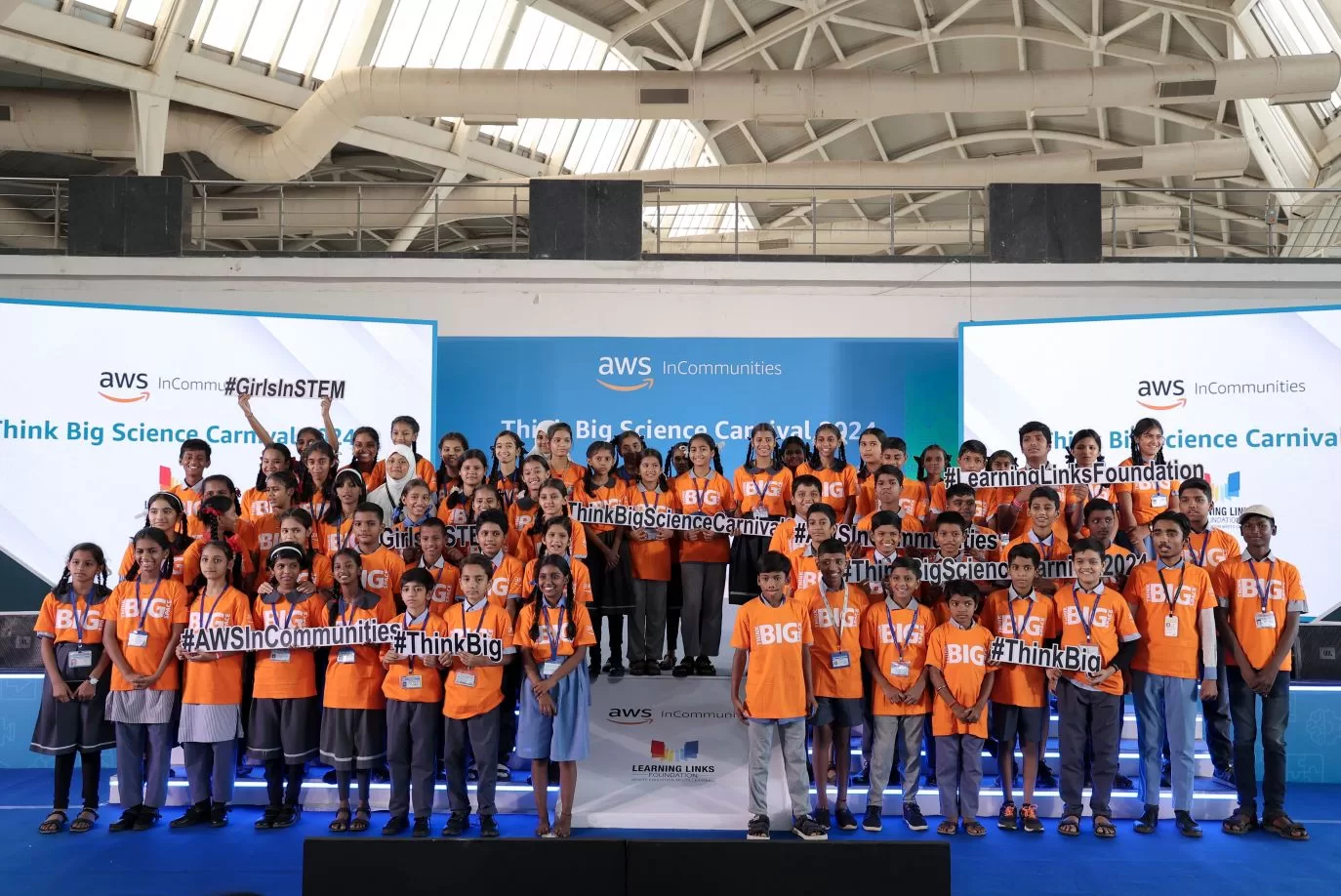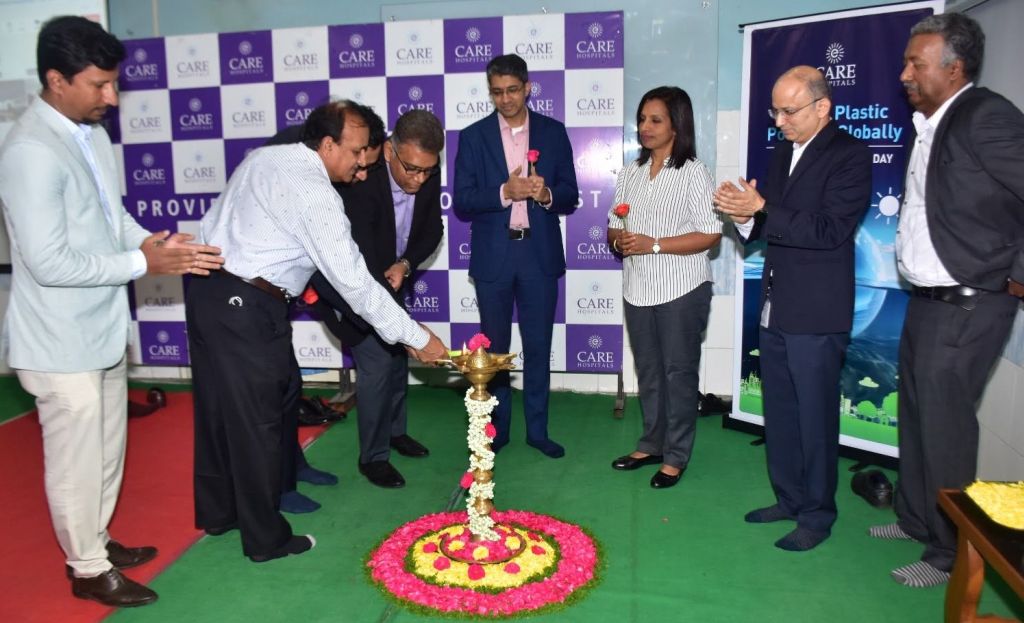Students showcase innovative projects and learn about emerging technologies at the AWS Think Big Science Carnival
Sustainability was a core theme for the fifth annual AWS Think Big Science Carnival 2024 organised by Amazon Web Services (AWS) with support from the Learning Links Foundation
Mumbai: A portable chamber to feed babies, a helping robot for doctors and nurses, a child rescue system in an open borewell, a mapping service for shopping complexes, and eco-friendly (maize) plates – these are just some of the 25 unique projects developed by students from Municipal Corporation-run schools in Navi Mumbai and Thane that were showcased at the finale of the fifth annual AWS Think Big Science Carnival on March 22, 2024.
The annual AWS Think Big Science Carnival is a flagship initiative organised by Amazon Web Services (AWS) InCommunities, with support from the Learning Links Foundation, a non-profit organisation. The competition is organised as part of the AWS Think Big Spaces Program, a comprehensive change initiative which provides a platform for students from underserved communities to develop skills in STEAM (Science, Technology, Engineering, Arts and Math) subjects early in life, and prepare for science, technology, and maths careers in future. The carnival provides an opportunity for students to identify and attempt to solve problems that they see around them with the use of technology and engineering.
Kalpana Gosavi, Education Extension Officer, Navi Mumbai Municipal Corporation (NMMC), said, “It's exciting to see the creativity and innovation of students at the AWS Think Big Science Carnival. I commend the AWS team for spearheading initiatives like this, which inspire children towards science and technology, and extend my gratitude to AWS for their dedication to empower young minds and pave the way for a brighter future. We hope the students are able to use this experience to advance their knowledge and develop innovative ideas that can help serve society well.”
The competition received 250 entries from students studying in grades six to eight from 56 Municipal Corporation schools in Navi Mumbai and Thane. The top 25 most innovative and unique projects finalized by a jury, were showcased at the finale, among which the winners were announced. Expert resource personnel and school teachers supported students in conceptualising and creating the innovative projects.
Sustainability as the core theme
The core theme of this year’s science carnival was sustainability, with students presenting projects under two areas – ‘Eco Warriors’ and ‘Sustainable Cities’ – both of which are in line with the Sustainable Development Goals (SDGs) prescribed by the United Nations.
This year’s edition provided an immersive and educational experience for over 2000 student attendees from 56 schools. The event was meticulously designed with sustainability at its core. From the vibrant creatives and colour schemes to the overarching themes, every element reflected a commitment to environmental consciousness. It also actively promoted sustainability efforts through initiatives such as the Climate Pledge, where students could pledge to uphold eco-friendly practices.
The carnival also provided an opportunity for students to hear about technologies such as artificial intelligence (AI), internet of things (IoT), and cloud computing from AWS experts. Students and their teachers also experienced interactive technologies on display, such as demos of Amazon Echo (Alexa) and Augmented Reality.




